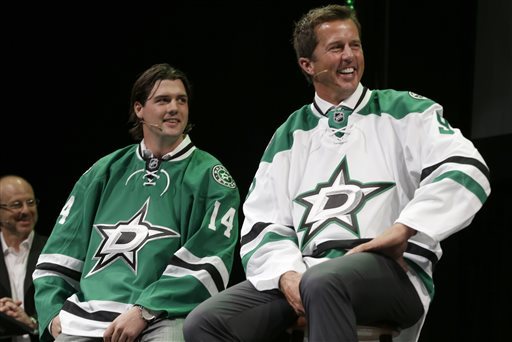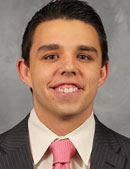|
Greg Ramirez is entering his third season as a hockey communications coordinator for the NHL's Dallas Stars. A native of Mexico City and a fluent Spanish speaker, Greg understands the importance of reaching out to the Spanish demographic and what it could mean for Stars hockey. Greg has also been with the Stars through new ownership, coaches, GM's and a team bankruptcy, so he's a true "been there" guy. I caught up with Greg this morning to talk shop, and here's what transpired. Spanish InfluenceDescribe the hockey market in Dallas. The sports market in Dallas is noticeably starting to shift, and there is a bigger presence with stations like Univision. My goal from taking over this job is to expose this team to different markets and people who have never heard of hockey. Getting the casual fan to come out to a game has been our big thing organizationally over the last year or two. How has being bilingual helped you in your role? I was born in Mexico City and moved to the United States when I was nine or 10, so I speak Spanish fluently and it's helped in developing relationships with the different Spanish media. We've received coverage from different places like Univision, Telemundo and stations that have never covered us before. It's been good. There is a long way to go in terms of hockey, especially in Spanish language outreach, but it's been good. We still have work to do. Crisis CommunicationWhat kind of organizational changes have been made since you joined the PR department? It's been a really interesting three years. In my time in PR, we've gone through a bankruptcy, a new owner, new GM's in Joe Nieuwendyk and Jim Nill, three different coaches, a uniform change, and a work stoppage. Each one of those things has had its own unique set of challenges. Which challenge was the greatest? The bankruptcy was tough because the perception was the team was on its way down. That was challenging from a perception standpoint because I tell people that in PR it's not like sales where you have something tangible to show people where I made X amount of dollars. What we do is sell perceptions, and when you have all the odds stacked against you it's very difficult to turn them. Things are improving now, and it's really neat to see the perception turn. You can see reporters' faces light up whenever they hear different things that we're doing now. They're excited, and that's good because we have a great marketplace. It has been neat to see this team and help in its resurgence a little bit. What message do you send out when the franchise is in transition? A lot of the last three years haven't necessarily been about telling them about our product on the ice, it's been about the success we've had. By telling them what has happened in the past we try to connect what might happen in the future. A perfect example of this is during our jersey launch we had two players come out in jersey: Mike Modano and Jamie Benn. The reason we did this was we wanted to connect the past with the present so people started associating success with this new regime. Getting the jobHave you always seen yourself in pro sports PR? No, I thought I wanted to be a broadcaster doing either play-by-play or color. I worked with FOX Sports throughout high school and college and said "OK, I'll do this and work my way up into a broadcasting role." I realized midway through college, however, that it wasn't going to work out for a variety of reasons. I put together a list of things I was good at and thought furiously about what it was I wanted to do. Just from hanging around the Dallas Stars I knew that they offered a full-season PR internship every year, and I had met most of the staff while I was working for FOX. So I asked Rob Scichili, who was head of PR at the time for the Stars, if I could have the internship and he said yes, he'd love to have me. I got the internship and later on in the summer of the following year there was an opening in PR for a full-time position and I was hired right away. There were no questions asked, just absolutely we'll hire you based on your work. What do you look for in a potential employee? Overwhelmingly the most important thing we look for whenever we hire someone is trust. That encompasses a lot and means different things to different people. It's easier to trust someone if you know who they are, where they're coming from and if you've heard positive things in the past. When we hire for our full-year internship, it's similar to my own story where Rob had seen my work for a number of years. I've met a lot of the candidates that end up applying, and that's because whenever I go to each city I try to meet the full-season or game-night interns there. It's good for me to evaluate the talent because I know it's going to help out in the end when we're hiring. Last year we received 600 resumes for a student position and it was overwhelming. Contacting GregWhen he's not on the treadmill, you can catch Greg on Twitter @GregoryKRamirez.
0 Comments
Leave a Reply. |
Archives
April 2017
Categories
All
|


 RSS Feed
RSS Feed
